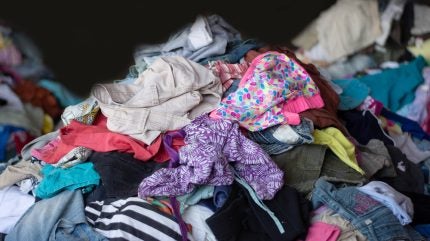
Rachel Kibbe, CEO of American Circular Textiles (ACT) and Circular Services Group, described SB 707 as an “important milestone” in holding the fashion industry accountable for its waste.
She stated: “This bill, which ACT (American Circular Textiles) helped shape, includes several key improvements: funding for reuse, recycling, and repair initiatives; an expanded definition of recycling technologies; support for private and nonprofit participation in sorting, reuse, and recycling efforts; a two-year needs assessment; funding aligned with the waste hierarchy; eco-modulation incentives; and market dynamic support to foster circularity.”
Kibbe believes these critical improvements will further bolster reuse and recycling efforts in California, and if effective, could catalyse circularity initiatives at the global level, given that California is the world’s 5th largest economy.
However, she cautioned that the bill also underscored the urgent need for a “federal waste policy.” Kibbe argued that without such a policy, the US risks a “patchwork” of state-level bills that could lead to fragmented and inconsistent regulations across the country.
“We face the potential of sustainability teams turning focus and resources to compliance, over innovation and true progress. A unified federal approach would streamline the system, prevent disjointed efforts, and better enable businesses to comply across state lines.”
Highlighting the importance of collaboration, Kibbe urged the fashion industry to unite and partner with industry groups that have been at the forefront of advocating for well-drafted policies that benefit both businesses and the environment.
She concluded: “SB 707 is a signal that the future is here, and it’s time for real partnership between industry and industry groups to make it a reality.”
What is SB 707: the Responsible Textile Recovery Act of 2024?
The Responsible Textile Recovery Act of 2024 aims to address the environmental and waste management challenges associated with textile disposal. The act seeks to encourage responsible recycling and reduce the environmental impact of textiles, such as clothing and fabric waste, which often end up in landfills.
Senator Josh Newman (D-Fullerton) explained that upon enactment, SB 707 will not only reduce the amount of textiles sent to landfills but will also support the development of upcycling and recycling across California and help address the environmental impacts of “fast fashion” and the “throwaway culture” it has abetted.
He added: “I’m very proud to see SB 707 signed into law. It will have a major positive impact on California’s environment and communities. SB 707 isn’t just about recycling; it’s about transforming the way we think about textile waste.”
Recently, the American Apparel & Footwear Association (AAFA) expressed readiness to collaborate on California’s newly passed SB-707, the Responsible Textile Recovery Act of 2024, with its CEO Steve Lamar noting the importance of EPR schemes in promoting investment in reuse, repair, and recycling infrastructure.



